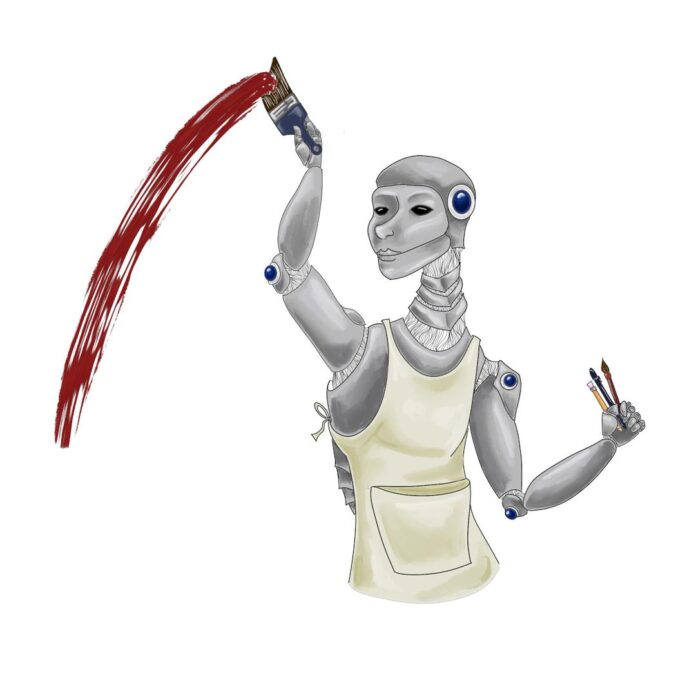Artists know inspiration when it strikes. We live for that rush of dopamine that comes at 3 in the morning, when an idea hits like a train and we are overcome with glowing confidence to create something out of nothing. This is the highlight of the creative process, soon followed by the taxing and occasionally miserable process of creating something. For lazy artists like me, our reach often exceeds our grasp.
This is where AI comes in handy. Over the past couple of years, algorithms that emulate human artistry have borne fruit in virtually every online space. From Midjourney to DALL-E to Stable Diffusion, AI-generated artwork has become unavoidable on the internet. This oversaturation has bred hostility towards the notion that anything not created by human hands dare call itself “art.” In an attempt to gauge public opinion, I posted some of my own Midjourney creations to Reddit. While reactions were mostly positive, I also received comments such as “art is dying,” and, “Is this AI? I wish people stopped f$&ing around with that, it’s obscene: no offense.”
Far from being offended, I was extremely intrigued. My own personal definition of art has always encompassed anything that can inspire a reaction in people: the stronger the reaction, the better. The strongly opinionated response to AI generated content suggests that robot artists can piss people off just as well as any human artist can. VICE has deemed AI artwork “cringe” and “completely soulless.” In response to a ChatGPT-generated song “in the style of Nick Cave,” the actual singer-songwriter Nick Cave called the result a “grotesque mockery of what it is to be human.” People are offended by AI-artwork on principle; it’s bad because a thinking, feeling human had no hand in its creation and therefore it has no soul. But surely bad art is still considered art? Algorithms can create shockingly beautiful results as well. If a critic were to look at AI artwork without knowing how it was created, he might accidentally appreciate it.
But perhaps that’s part of the problem. Are we concerned about the ambiguous nature of AI art; worried that one day we’ll accidentally appreciate something that wasn’t created by human hands? Are we anxious that our robot contemporaries might be better artists than us?
Well, don’t worry artists. You haven’t been replaced. At least, not completely. For starters, it’s wrong to assume AI art is created completely without a human’s touch. Anyone who has attempted to use AI to create something to their exact specifications knows that it takes a whole lot of trial and error. AI also routinely mangles the finer details of portraiture, such as fingers and facial features. If you want something made to your exact preferences, or in a unique art style, it’s still far easier to just commission an artist.
It’s important to remember that AI art will likely constitute a new medium of art, not a replacement for art altogether. The invention of the camera and the ability to take a snapshot of reality did not discourage people from drawing and painting in a realist style. So why should AI art discourage you from pursuing your own artistic talents?
Of course, there are other reasons one might dislike the rise of AI artwork. To train a machine to paint it must first trawl through a digital ocean of images, most of which are protected by copyright. However, if you visit ChatGPT and ask for “an epic rap battle between Mickey Mouse and Bugs Bunny” it will politely decline. DALL-E is similarly stubborn about generating an accurate picture of Walter White. As long as copyright holders apply pressure, AI software will accordingly be kept in check. Of course, there are ways around this, but people will always find new ways to break the rules.
So don’t fret artists — AI is not replacing you (at least for now).
Matthew Iddon was born at an exceptionally young age. He aspires to one day become old. He currently resides.



